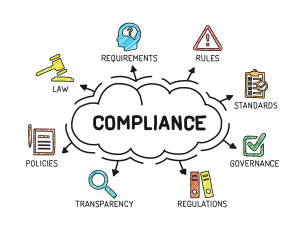Do You Have an ADA Compliant Website?
Most people don’t know if they have an ADA compliant website. It takes a knowledgable company that has experience designing ADA compliant websites to see whether your site meets all the latest requirements. Without experience, the list of requirements can look very daunting. Make sure you hire someone that knows what they’re doing. Don’t risk a lawsuit and heavy penalties for someone that may not have experience in ADA compliance.
Here’s a regulations list directly from W3C :
Perceivable
- Provide text alternatives for non-text content.
- Provide captions and other alternatives for multimedia.
- Create content that can be presented in different ways,
such as by assistive technologies, without losing meaning. - Make it easier for users to see and hear content.
Operable
- Make all functionality available from a keyboard.
- Give users enough time to read and use content.
- Do not use content that causes seizures.
- Help users navigate and find content.
Understandable
- Make text readable and understandable.
- Make content appear and operate in predictable ways.
- Help users avoid and correct mistakes.
Robust
- Maximize compatibility with current and future user tools.
Legal Issues of not Having an ADA Compliant Website?
When it comes to your business, it’s always better to be safe than sorry. Recent lawsuits and demand letters threatening lawsuits due to a website’s failure to comply with ADA regulations have come to light, giving businesses even more reason to double check that their site is accessible to everyone. Not only does proper ADA coding expand your business by giving those with disabilities easier access to your products and services, but it also helps you avoid $10,000-$70,000 lawsuits. Most of this cost goes toward plaintiff legal fees, legal defense fees, and periodical audits/remediation. With over 240 businesses already sued and 3,435 lawsuits filed in federal court, it’s not worth the risk to ignore such a rapidly growing problem. It makes more financial sense to check that you have an ADA compliant website before you get hit with one of these lawsuits.
What many don’t realize is that the Web is considered a ‘place of public accommodation’, meaning access to web content by those with disabilities is a civil right. The American Disabilities Act is meant to improve the lives of those with disabilities by enforcing proper regulations. One of these regulations is that websites be coded correctly for the screen readers that blind people utilize to read web content. The most common violations is to neglect image labels (alt tags) to images. It’s not up to your web developer to research and meet these guidelines; it’s the business owner’s responsibility to acknowledge these regulations and form a contractual agreement with their web developer to comply. This story of a small Vermont firm that sells winter equipment is just one of dozens of cautionary tales, and we don’t want your business to join their ranks.
We are now offering a Web Development service to ensure you have an ADA compliant website.

